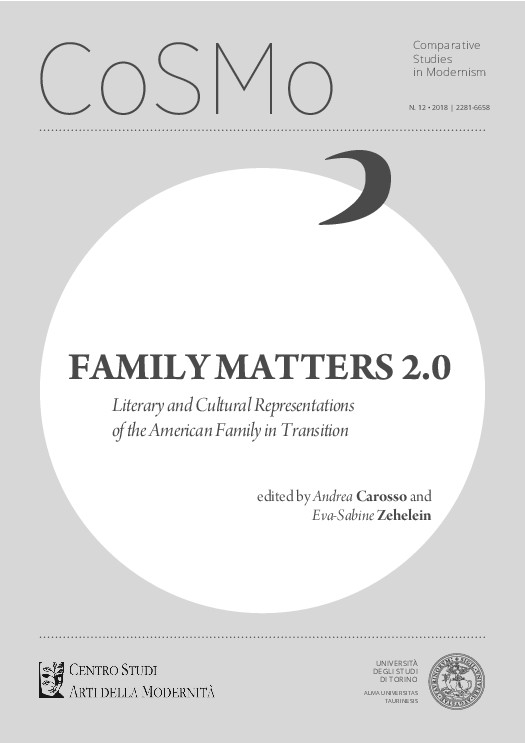Self-Explorations of Mothering and Family Life in Maggie Nelson’s “The Argonauts”, Sarah Manguso’s “Ongoingness”, and Heidi Julavits’s “The Folded Clock”
DOI:
https://doi.org/10.13135/2281-6658/2647Keywords:
autofiction, contemporary literature, motherhood, family, women's studiesAbstract
This essay explores mothering and family life in three twenty-first-century literary narratives: Maggie Nelson’s The Argonauts, Sarah Manguso's Ongoingness, and Heidi Julavits's The Folded Clock. These texts, through an autofictional account of their authors’ experiences with family making, call attention to the challenges contemporary American families face vis à vis traditional roles, mainstream assumptions, heteronormativity, and maternal roles. By voicing a critique to today’s “impossible standards” (O’Reilly 2010) for families and mothers, these narratives are challenging traditional images of “feminine selflessness” (Willett, Anderson, and Meyers 2016) and address cultural and ethical issues concerning current family models still unable to recognize queer family making and the idea that families are a dynamic process. The narratives’ combined interest in self- and family-making is reflected in their fluid generic status. In our post-postmodern literary period, these authors’ life writing is not only an attempt at postirony (see Konstantinou 2017). Rather, these narratives respond to the affective logic of contemporary autofiction (Gibbons 2017) portraying relational identities of the self. Nelson, Manguso and Julavits represent motherhood as a transformative, all-encompassing and bodily experience and choose to rely on “unfinished” genres (half-memoirs, half-essays, half-fiction) to reflect the idea of incompleteness around today’s motherhood and family matters.
Downloads
Downloads
Published
Issue
Section
License
Authors keep the copyrights for their work and give the journal the work’s first publication copyright, which is at the same time licensed under a Creative Commons License – Attribution, which in turn allows other parties to share the work with an acknowledgement of the work's authorship and initial publication in this journal.
Content Licence

You are free to copy, distribute and transmit the work, and to adapt the work. You must attribute the work in the manner specified by the author or licensor (but not in any way that suggests that they endorse you or your use of the work).
Metadata licence

CoSMo published articles metadata are dedicated to the public domain by waiving all publisher's rights to the work worldwide under copyright law, including all related and neighboring rights, to the extent allowed by law.
You can copy, modify, distribute and perform the work, even for commercial purposes, all without asking permission.






